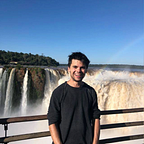Thoughts on The Third Plate
This book is written by a very successful chef, Dan Barber, and it talks about food, agriculture and society. I thought it was great. Taught me a lot about the entire agriculture system, how it has changed over time and the problems as well as pros of where we currently stand.
Takeaways
The way soil and nutrients work
One thing that blew my mind was that before the huge emergence of pesticides and things that altered crops, most farms had tons of diversity.
92% of farms had chickens, 82% had corn and 88% had cows and pigs. 80 years later, those numbers are 4, 10 and 5 respectively. The reason being that it became way more efficient to focus on one or two things.
The idea is that plants need nitrogen in order to grow and live and that used to come from two main sources: planting legumes (like beans) which added nitrogen to the soil, and then from manure (animal poop). That was a big reason why there were animals on so many farms. The problem with those two was that legumes can be tricky to plant and manure does not act as quickly and can also be difficult to deal with.
They eventually created chemicals that could add nitrogen to the soil, eliminating the need for other sources. The big problem with that is that it wasn’t just nitrogen that manure added. It added tons of micronutrients like Iron and Zinc. Due to the dramatic changes, we have lost many of those micronutrients in our food. That makes it harder to get those nutrients that many nutritionists say we desparately need.
One claim the author made which was interesting is that because we are lacking these micronutrients, our bodies tell us we are hungry when we are really just craving those specific elements. That leads us to eat more, which he says could have been a cause for the rise of obesity.
Ultimately, because of the changes to the soil and what we grow, it has dramatically not only changed the micronutrients, but also the taste of the food that we eat. Barber dives into many inspiring examples of farmers doing the opposite and ending up with very tasty food.
Do crops drive what we eat or does what we eat drive crops?
This was another argument Barber made that I found fascinating. A hundred years ago (and more) when there was not the ability to alter crops and access whatever we wanted, cultures had to rely on the crops they had accessible. This basically meant that in distinct parts of the world, types of cuisine developed based on the food that was there. Hence, Chinese, French, Italian, etc. Or — at least that’s one of the larger reasons that happened.
With the US on the other hand, we have always had more access to most crops, eliminating the need to be stingy and thoughtful. Instead, we can handpick our ingredients. This is definitely an overgeneralization and the Southern US has unique cuisine, but the argument is very intersting.
We have basically created this world where instead of letting nature drive the food that is made based on so many factors, we are telling nature and then taking the food. In the short term it’s tasty, but it’s very bad for the soil and animals.
Fish
That’s especially the case for fish, who have had massive depletions recently.
An interesting point that came up is that many different types of fish can actually be cooked with that we typically thing as gross. Barber gave examples of using different fish like Mullets and Phytoplankton to make food and there were times when those dishes were just as good — or better — and they are more environmentally sustainable. The problem is where our preferences lie.
The entire supply chain
There are now big issues with the supply chain for food. There are people called breeders that come up with the seeds that the farmers use. Then there are all the chefs and bakers that end up getting ingredients. Due to needing profits and working at scale and all the confusion in the middle, this supply chain makes it hard for changes, creativity and changing habits. Barber goes into all of that.
Sustainable future for food?
After the book, I’m not so sure. More exploration to go and Barber touches on it a bit.
Overall, it was an inspiring read though that makes me want to eat more grass-fed food and appreciate flavor in what I eat way more. He talks about a bunch of other things as well including:
- Wheat that can have hints of nut or chocolate
- Geese or duck liver — fagra and one of the best growers in the world
- Small time farmers and how their needs have changed
- The impact and emergence of organic farming
- Tons more about the ocean
- Lots of really cool individual stories of people trying to make an impact
Thoughts on this review/the book in general? Comment or send me a note :)
Full reading list here
